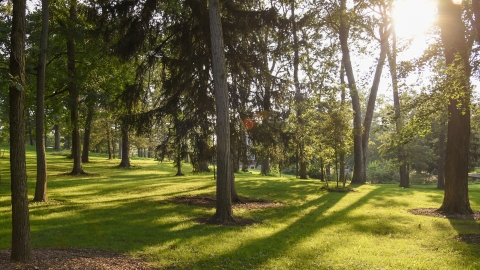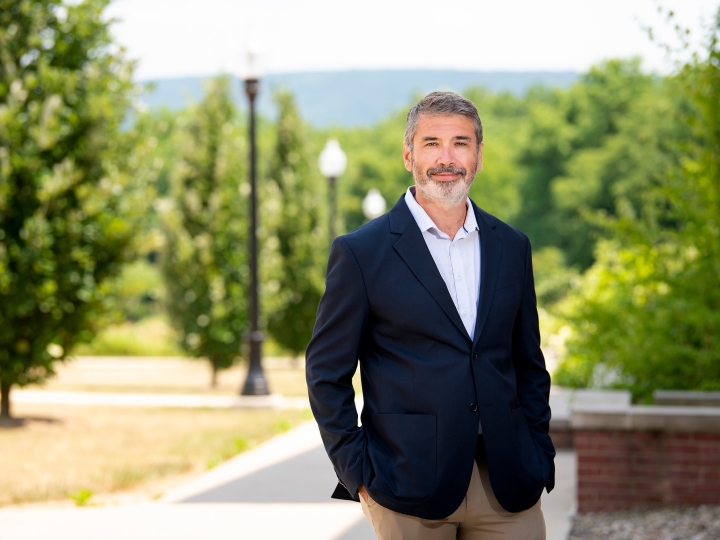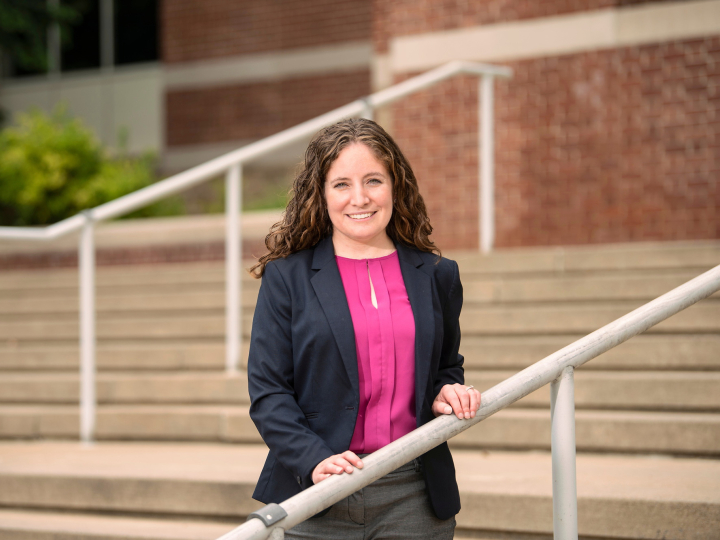
Cool Classes: Environmental Humanities
February 25, 2019
The sun shining through The Grove in summer. Photo by Gordon R. Wenzel.
What class? Environmental Humanities
Who teaches it? Professor Andrew Stuhl, environmental studies
"What role do the humanities play in understanding nature? How can history, philosophy, literature and the arts help us address environmental problems?
"To answer these questions, I begin my course not in the classroom but outside, in the more-than-human world. Bucknell's Grove — a stand of trees as old as the University itself — is the perfect introduction to a new field of inquiry, the 'environmental humanities.' This scholarly pursuit highlights issues of meaning, identity and ethics, and patterns of historical change. When we look at the trees in the Grove, do we see a source of timber for heat or construction materials? A habitat for animals? A quiet retreat for introspection? A carefully managed landscape? A living legacy of pre-industrial, colonial America? The Grove is at once all of these things. It is both a reflection of a history of human uses and a reservoir for human values, aspirations and concerns.
Learn more about applying to Bucknell
"The course starts in the Grove, but it doesn't end there — we embark on journeys of discovery across the semester. Our course is built around three units, each of which is both a big idea and a kind of human engagement with nature. Each unit features unconventional perspectives from the humanities on what are commonly viewed as natural science or social science topics.
"I start our discussions by randomly drawing a student's name. The chosen student is required to answer a question about the day's readings in front of the class. Students both love and despise this exercise. It certainly induces stress, but ultimately, they find it rewarding because it prepares them to think on their feet, articulate a position and defend it with evidence, and in engage in good critical-discussion skills. All of these things, they say, are transferable to life beyond the class — like having difficult conversations about the environment with friends or family, interviewing for jobs, or even just learning how to listen more attentively. In the end, then, environmental humanities presents more than just another way of understanding humans and nature. It's also a crucial mechanism for putting that understanding into action, through the art of rhetoric."
See what else Bucknell offers in the Environmental Studies Program.
Are we missing out on a cool class? Send suggestions to coolclasses@bucknell.edu.

